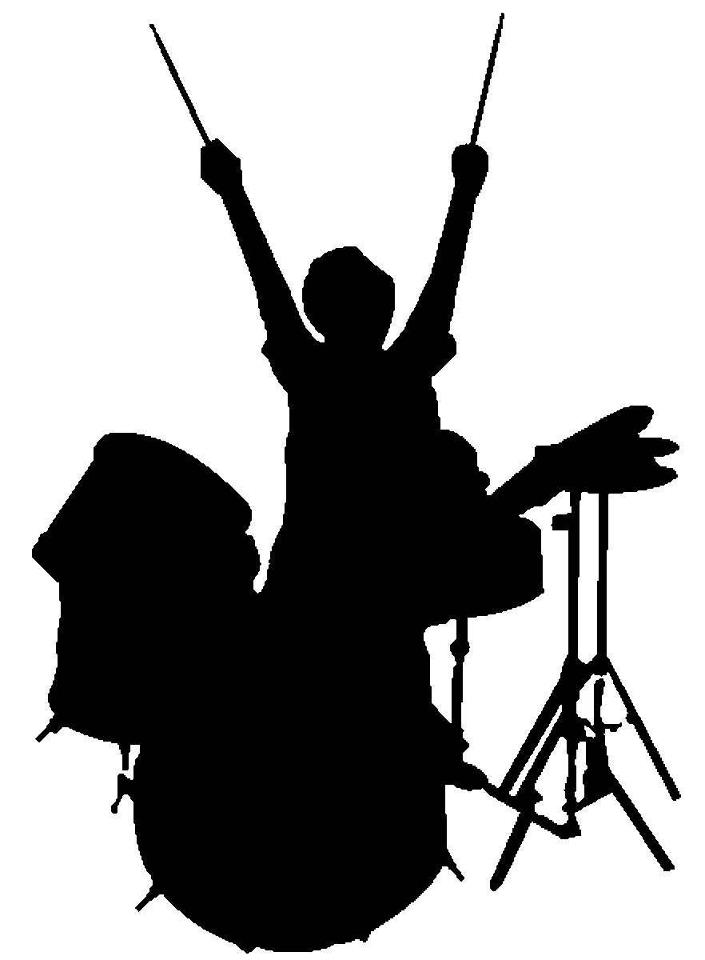My Teachers and Influences.
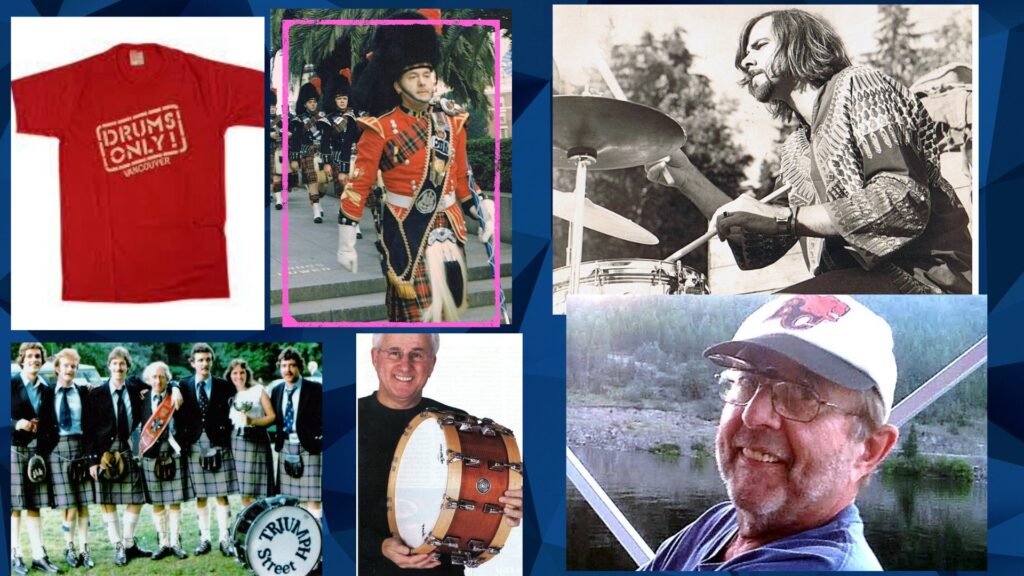
Influence. According to the Oxford dictionary:
in·flu·ence noun
the capacity to have an effect on the character, development, or behavior of someone or something, or the effect itself.
I see it time and time again. A musician lists their influences as a famous band or musician that they have loved listening to and wanted to emulate their sound.
I have no real quarrel with this perception of fame guiding people’s aspirations. I saw Buddy Rich perform live many times and the performance never failed to leave me awestruck. I loved the Tower of Power band and had the great fortune to watch David Garibaldi from behind the stage, just a few feet away. But are these influences?
The people that I consider to be my influences are people that most of you reading this have never heard of. They are the teachers, bandmates, co-workers with whom I have had a personal relationship. Their impact on me is far more profound than my drumming idols.
Here are my reflections on people who truly influenced me as a drummer and drum teacher. Not celebrities. People without whom I would not be quite the same in my drumming life.
I have no claim to fame, I have paid my bills for the last four decades. I managed to do most of it through drumming and music. I have people to thank for that.
Scroll down.
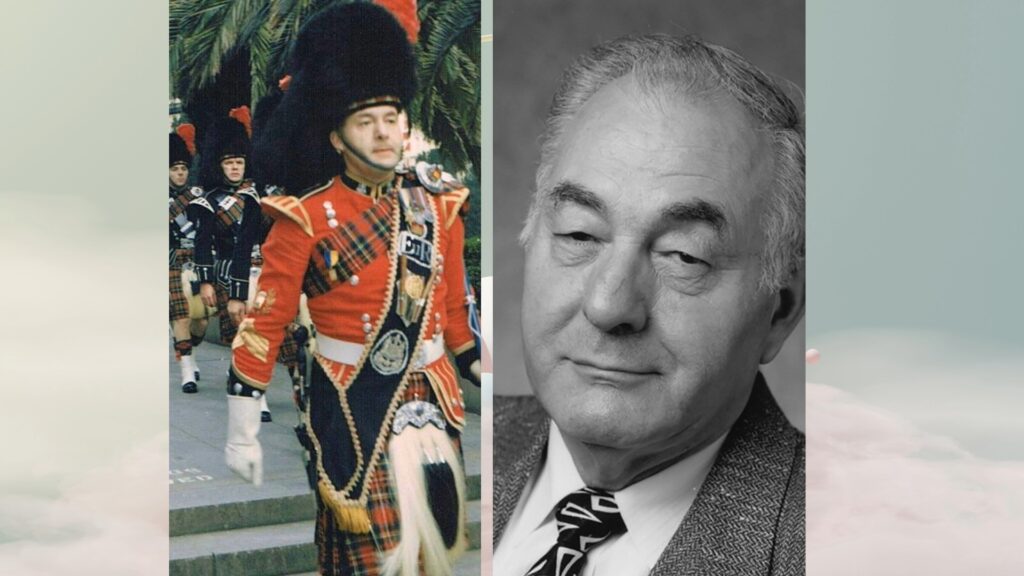
Part 1; Don Bellamy
I had my first drum lesson with Mr. Bellamy back in November 1968. He devoted his Saturday mornings to teaching drum lessons in his basement on Dundas St, East Vancouver. No drum pads. Up to four kids at a time gathered around his oak table. We all played right on the table. He built a little box for the smaller kids to stand on. To this day I still remember walking along the side of his house to go in for my lesson and hearing wood hitting wood. This created a rhythmic sound that still intrigues me and draws me in fifty five years later. If you were his student, he would make you feel like your lesson was the most important thing he had to do all week. He would always make you feel like you had just reached the next level of your development, never that you were falling behind.
Bellamy’s contribution to pipe bands and drumming in Vancouver is immeasurable. He was a co- founder and director of the White Spot Pipe Band (Originally called Hastings East Pipe Band, later the Optimist PB). One of the things Bellamy had said to me was “As long as I am director of this band, we will never play a competition.” He greatly respected competing bands. He spoke highly of the band’s co-founder, Malcolm Nicholson, who parted ways with Bellamy to form the Vancouver Kiwanis Boys Pipe Band, which was in Bellamy’s words “a very successful competition band”. Bellamy, however, had a different agenda in mind. He kept the band busy playing parades, tattoos, shows and corporate events. He wanted to help young kids understand the value of discipline, military structure, and leadership. I think he saw pipe bands as an excellent medium for this goal. With Bellamy, it was understood that promotions followed dedication and that seniority came with expectations. He had patience with the kids that struggled to play their music and encouragement for those that caught on quickly. If he saw one of his students doing well in solo competitions and a yearning to be in a competing band, he would help that student advance, personally calling the lead drummer of a competition band on that student’s behalf. He held no grudges when it came to his students’ goals being at odds with his band’s agenda.
As a successful businessman, Bellamy was well connected. The band had great trips and he made sure that it always had the best of everything. He also expected performances and behaviour that honoured the opportunity.
Many of us older drummers had lessons around that oak table and did our time in the Optimist or White Spot Pipe Band under his watch. Some of us are still playing, all these years later and some are passing the torch to the next generation.
On a personal note, I’ve made a career as a drummer and drum teacher. I don’t know if I will ever live up to how I remember Mr. Bellamy as my teacher. He gave me a feeling that I was good at something. He gave me a push in a direction that I needed to go. I think he gave that to all of us that gathered around his oak table every Saturday morning.
The pipe band scene is very different today than what it was in the 50’s and 60’s. B.C. pipe bands have produced some great drummers and drum corps over the years. Without question, the standard here is very high, thanks to the many dedicated drummers who have given their time to play, teach and run pipe bands. I, however, still lament the vacancy left by a man who founded a band that is still in operation sixty-seven years later. A band that has produced many pipers and drummers that moved onto different piping and pipe band organizations all over B.C; A man who taught kids how to march, present themselves on parade and saw character building as the primary goal and competitive drumming as something to be moved onto afterward.
Thank you for all that Mr. Bellamy.
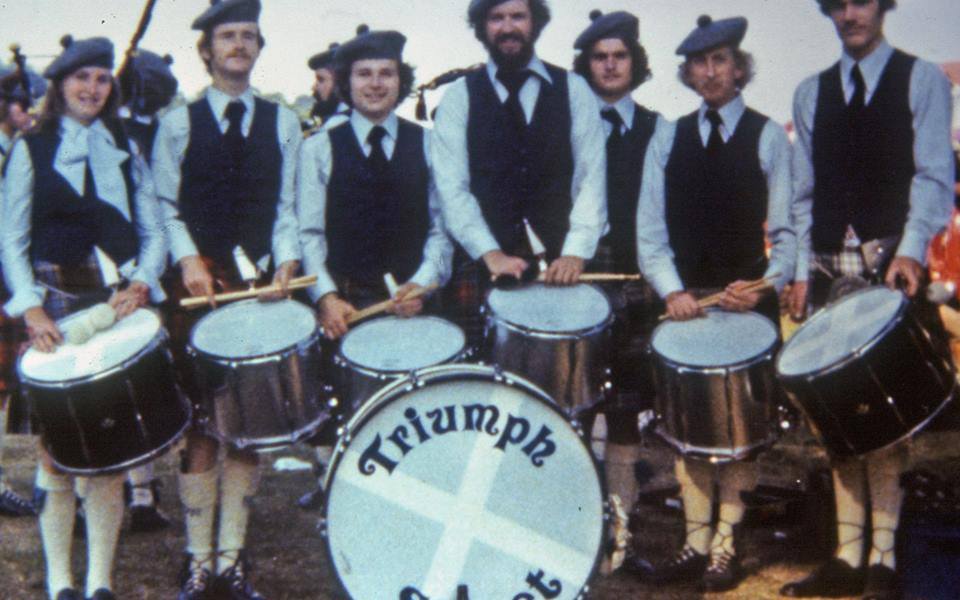
Part 2: Jack Gallaher/Triumph Street
In 1973, as I was getting close to aging out of the White Spot Junior Pipe Band, Jack Gallaher guided me into the Triumph Street Pipe Band. That was a life defining move for me. The band became international award winners in the pipe band community and the world champion drum corps in 1979.
The impact of those times on my younger self ran deep. I had some outstanding mentorship from Jack, as well as lead drummer Willie McErlean, bandmate Jon Moore, and even the Pipe Major Hal Senyk. I consider Jack Gallaher to be my second teacher.
Jack was the one that I went to for lessons before joining the band. He taught me the importance of controlling stick height and being meticulous in in producing sound. I still teach those basic principles to my students today. Aside from the lessons, Jack gave me a lot of his personal time helping me make the cut in the TSPB drum corps.
Jon Moore exposed me to many other styles of drumming and great drummers. He told me that “Pipe band drummers have no monopoly on rudiments”. (Yes, that was news to me at the time.) We had many “serious drum corps practices” (AKA: drink beer and play records) after actual drum corps practices). He got me listening to drummers that I would not have heard of otherwise.
Willie was a student of jazz great, Joe Morello. He brought a high standard of technique to us in the corps. Of all pipe band drummers that I have known, Willie had the most unique touch to the drum. Blindfolded, you could pick his sound out from the crowd.
I spent the better part of two decades in the Triumph St. band, with some time off for good behavior. We had many generations and iterations of the drum corps. I was influenced by literally everyone I played with, to one degree or another. The original group I played with was the most impactful.
Thank you, Jack for guiding me into the band. Thank you, John, and Willie for opening my ears.
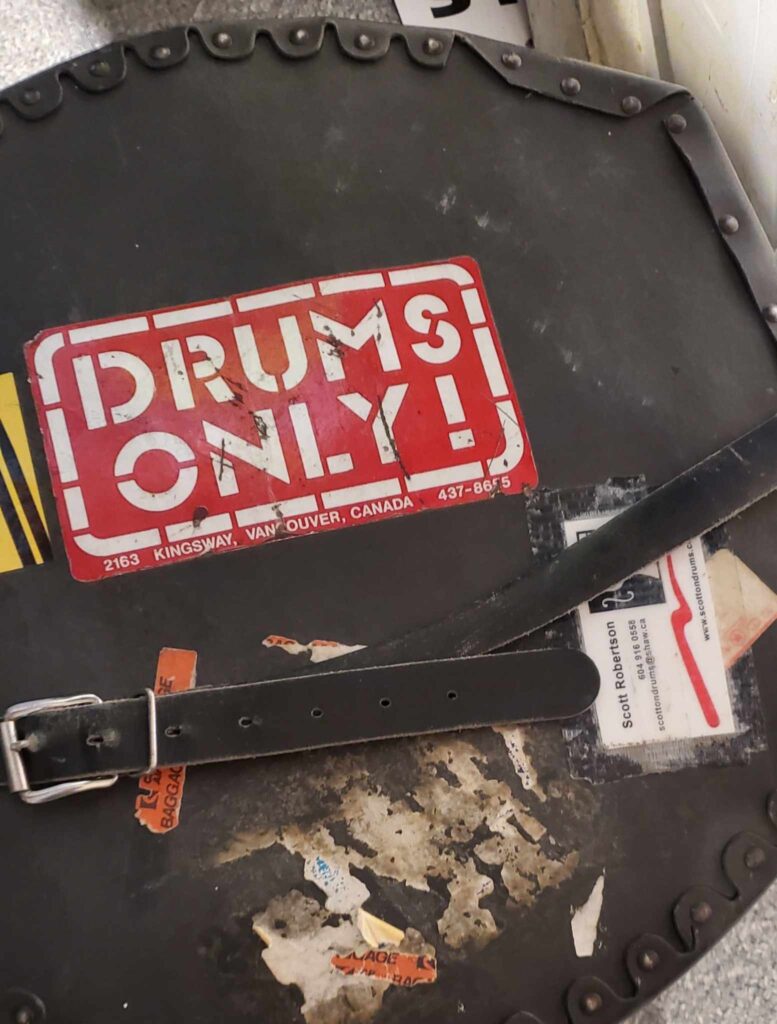
Part 3: Drums Only!
It’s difficult to put the relevance of “Drums Only!” into words.
Ostensibly, it was a music retail store devoted exclusively to the sales of drums a percussion instruments, as well as a venue for drum lessons. In the mid 1970s, there was nothing like it in music retail. Ray Ayotte founded the store when drumming was at its peak popularity. They may well have sold more drums on a Saturday than some music retailers will sell all year today.
It was more than a store. It was a hub for drummers. The staff made you feel welcome to hang out and talk drums. There were lessons going on in their teaching studios. It felt cool just to be there. Wearing a “Drums Only!” T-shirt was THE way to announce your passion to the world. Wearing one and not a drummer? Uncool, unless you were the hot girlfriend of someone who was.
After ten years of being strictly a rudimental pipe band drummer, my time in the Triumph Street Pipe Band drum corps inspired me to learn drum set. (See part 2 from last week’s post). I bought drums, signed up for the jazz and commercial music program at Vancouver Community College and where else would I go for my drum lessons? Upstairs to the D.O. teaching studios at 2163 Kingsway, Vancouver. Micky Earnshaw is who I consider to be my third drum teacher. Micky was big on teaching rudiments so being that I was a pipe band drummer, we hit it off right away. He heaped pages of work on me and said go to it.
So, I wasn’t just a “Drums Only!” customer, I was taking lessons there! (I should probably put the word customer in quotes. I was a broke student and hung out after spending a whopping $2.50 on a book. They had a book bin that was amazing!).
Eventually, I got a part time job in the store. All I will say is that it was less glamorous than I had imagined. I was, however, surrounded in experienced drummers, staff, and customers. Famous drummers would visit the store while on tour. There were clinics. Teachers shared their knowledge and experience generously. I got an education by just being around all the staff, teachers, and retail. (Aside from Ray, two of them were very impactful on me. More about them in upcoming posts). Eventually, I became one of the “Drums Only” teachers. That was a badge of honour!
I truly miss my weekly chats with owner/founder Ray Ayotte. He gave me a lot of career advice. The one that really stuck with me: If you have a gig as leader, open the union book and call the good players. You’ll be surprised that some of the best in town are happy to do a scale gig if they are available. If, during the gig, “you feel like they’re starting to take the gig away from you…, well, let them! These guys have a ton of experience doing what you are trying to do.”
Over time, Drums Only became “Ayotte Custom Drums” and focused solely on manufacturing. (Ayotte drums had a huge impact on the world of drum manufacturing, but that is a whole new story.) The teaching studios closed along with the retail store.
I will always be a little sentimental when I think of the store, especially 2163 Kingsway, Vancouver.
Thank you, Ray, and a long list of others, all of whom I taught with and worked with at Drums Only.
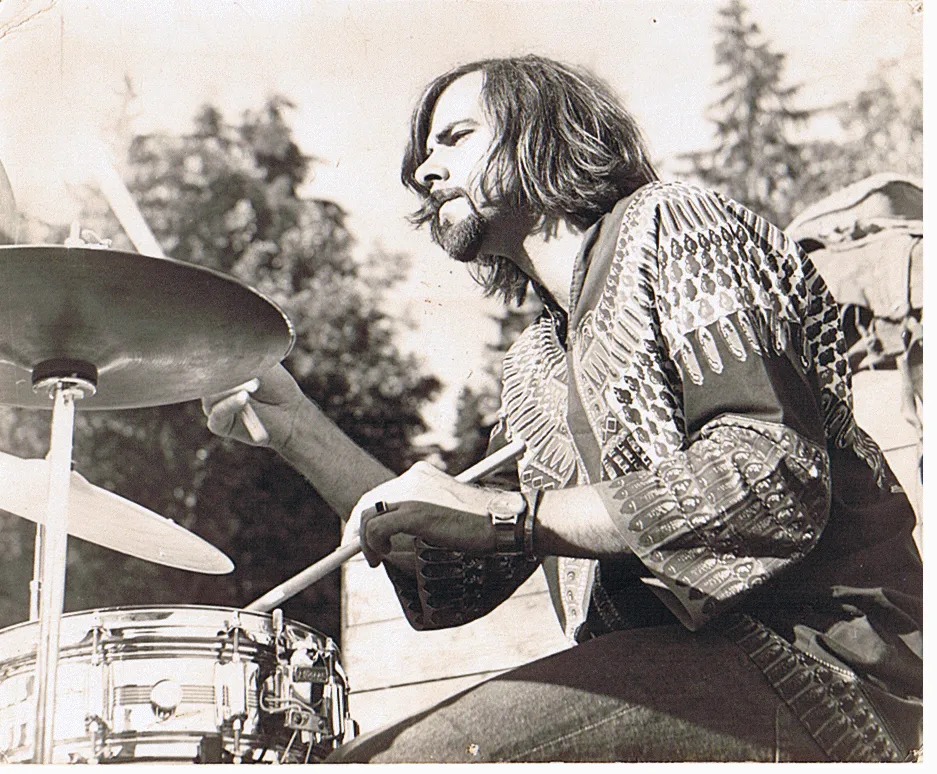
Part 4: Alan Wiertz
Well, there is no other way to say it. Al was known as a weird guy. He had only one way of playing a gig; his way. (He didn’t get a lot of work.)
I won’t go on about his eccentricities as they are not relevant to this story. What is relevant is the impact that he had on me and how I viewed drumming, the drum business, and the world around me.
The lessons were at the “Drums Only!” store on 2163 Kingsway. (See last week’s part 3 in this series.) His lessons were always in two parts: a philosophical look at how we get in our own way on the road to our ambitions, and a drum lesson. The drum lesson was in stark contrast to everything else about Alan. It was extremely conservative and based on time-honored methods that had a track record of raising the skill level of those that had the patience to do the work.
Alan was like all of the teachers at Drums Only in one respect; He was extremely passionate about the music he played, and he could often have a somewhat militant attitude about what it takes to achieve an acceptable level of skill to do a gig.
I credit Alan for refining my hand technique and instilling me with discipline for meticulous practice. He was strict about detail. He also taught me to have patience in practicing mundane, slow paced, repetitive drills that have a big pay off. It’s tough for most musicians to endure this type of practice. Alan helped me to stay in the moment and pursue.
Alan was a bit of a legend in the Vancouver jazz scene. I will always be in debt to him for raising my skill level and helping me forge ahead when I had serious (at times crippling) self doubts about my future in drumming.
Intention first, action second, results follow. Thank you, Alan.
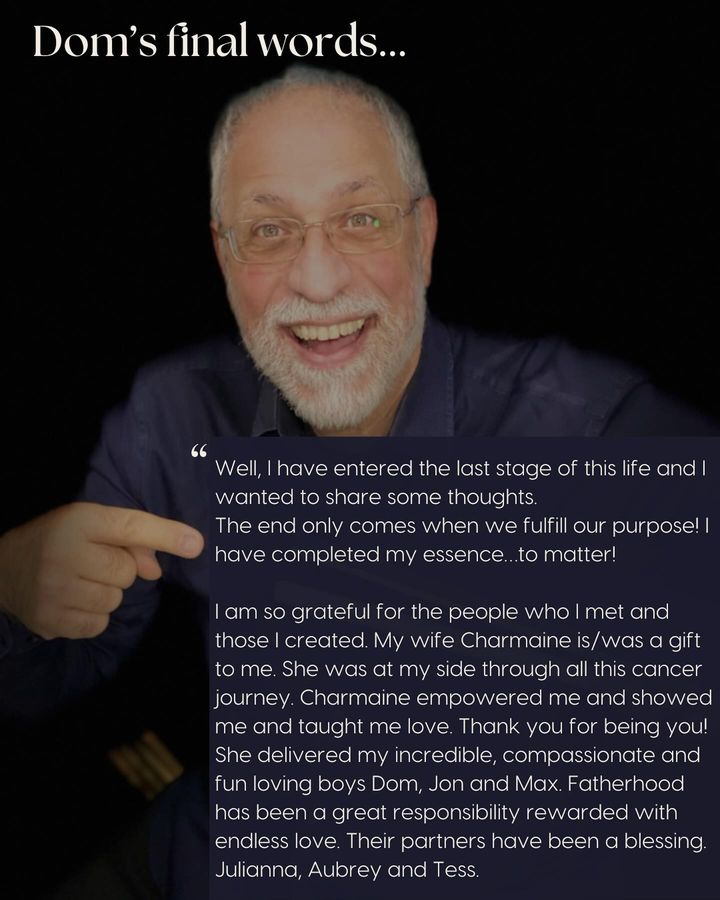
Part 5: Dom Famularo
I am on a very long list of people who can call themselves a student of Dom Famularo, who has left us while writing these reflections. I will not add anything to his words posted here.
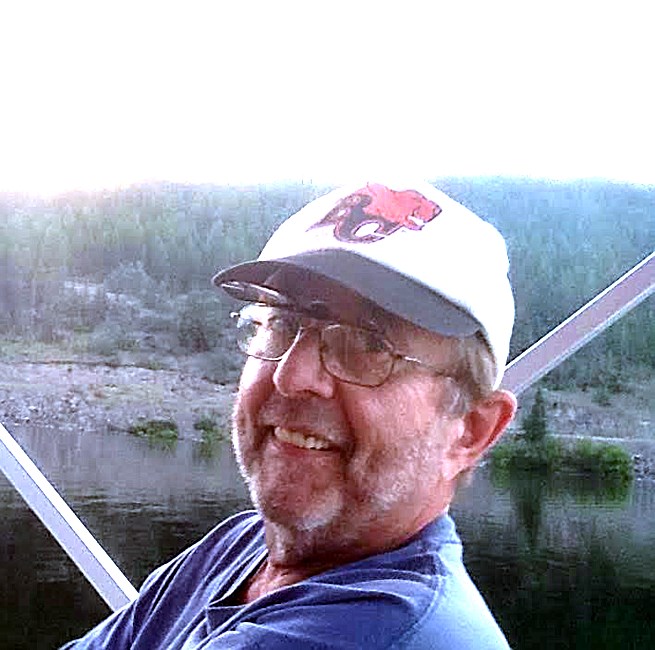
Part 6: Ken Moore
In 1979 I signed up for the jazz and commercial music program at Vancouver Community College. Ken Moore was on staff as the private instructor for all the drum/percussion students.
Ken was the Principal Timpanist/Percussionist with the Vancouver Symphony Orchestra and Vancouver Opera Orchestra. He had a lot of experience performing for both live acts that came to Vancouver and studio sessions for TV and film. As a teacher, he was very no-nonsense when it came to the requirements of being a professional musician. He took his students ambitions seriously. If he saw shortcomings in my work ethic, he would speak frankly, without hesitation or evasion.
Many years after my time at VCC, I was able to speak with him at a “Drums Only!” reunion lunch. I told him that I had been teaching and playing since college, humble as my career is. He gave me a hearty pat on the shoulder and expressed pride that I had made a career out of drumming. I meant a lot to me.
In writing this, I google searched him and found out that he had passed away six months prior. It was deflating to read.
Thank you, Ken, for your forthright guidance.
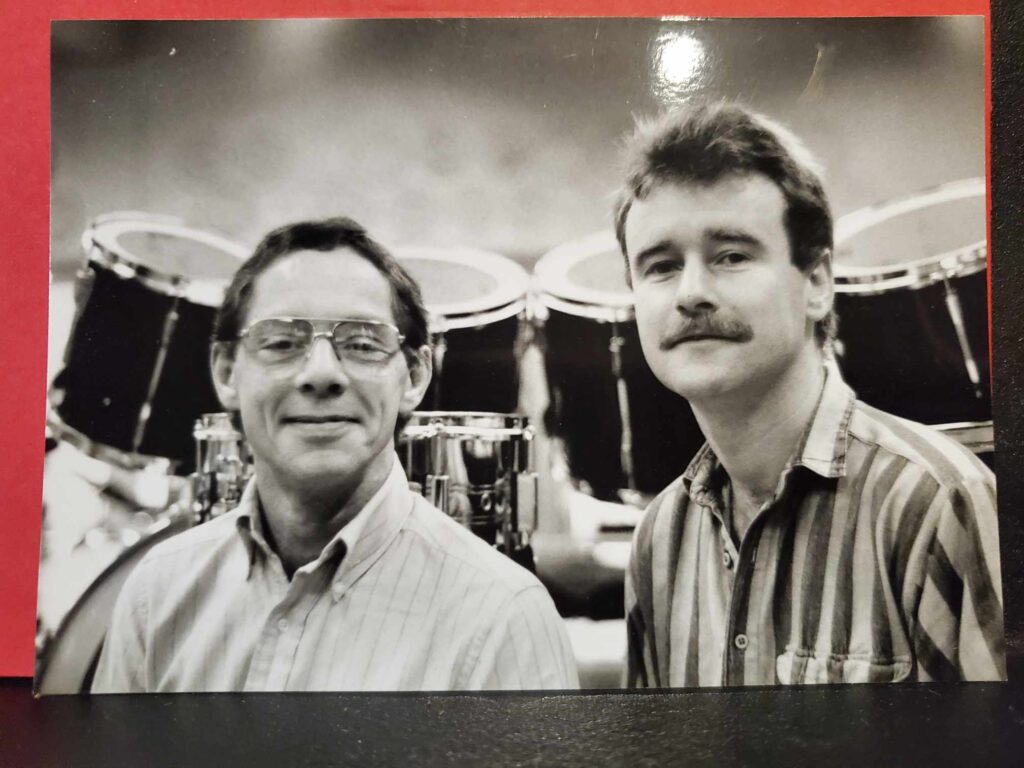
Part 7: Don Reid
I’ve heard it said that if you are not living in the real world and you don’t go out into the real world, someone will bring the real world to you.
Don Reid was a fellow drum teacher when I was teaching at “Drums Only!” in Vancouver. Although I was never actually one of his students, his affect on me was quite profound.
Don brought a wealth of experience with him when he came to Drums Only. He was a Vancouver boy who had spent 20 of his formative years in New York making a career as a drummer in “the Big Apple”.
He was completely devoted to being a working drummer. He had no musical prejudices when it came to musical style or genre. If you wanted to work, then you played what was offered in the style required with the professionalism that it deserves. His answer to “I don’t play that shit” was “That’s right. You don’t”.
Don and I did several projects together including school seminars and presentations at the BC Music Educators Conference. He was an absolute perfectionist for detail. Every word of the presentation had to be carefully chosen. He never wanted to risk poor wording or articulation of an idea to allow easy misinterpretation. We had many (often heated) disagreements over how to present our joint ventures, but I always respected his commitment to being thorough, clear, upholding high standards and to never condescend.
Don ran a percussion ensemble out of the teaching studios at “Drum Only!”. (see part 3) We did a school concert and a couple of shows at a club called The Glass Slipper in Vancouver. The object of the compositions was to answer the question “Rhythmically. what will it take to completely mess up a group of drum teachers? How out about getting one of them to play the “and” of “2” and “5” on a quarter note quintuplet over four beats? Will that do it?” Well, yes it did. Quite thoroughly. But we did it. We worked on it and played these very challenging pieces, and we all came out with a far superior sense of time as a result. I’m pretty sure we bored the audience to tears but that’s beside the point. It was very difficult, and we did it.
To this day Don’s influence is with me whenever I teach a lesson or play a job. In teaching, I always make sure I consider my wording carefully. I teach drumming only as I see the drum world. I never talk down to children or redesign any of the theory to make it easy. I teach only what is. Don is always in my ear making sure I play the job, not indulge in my own musical impulse.
Thank you, Don, for bringing the real world to me.
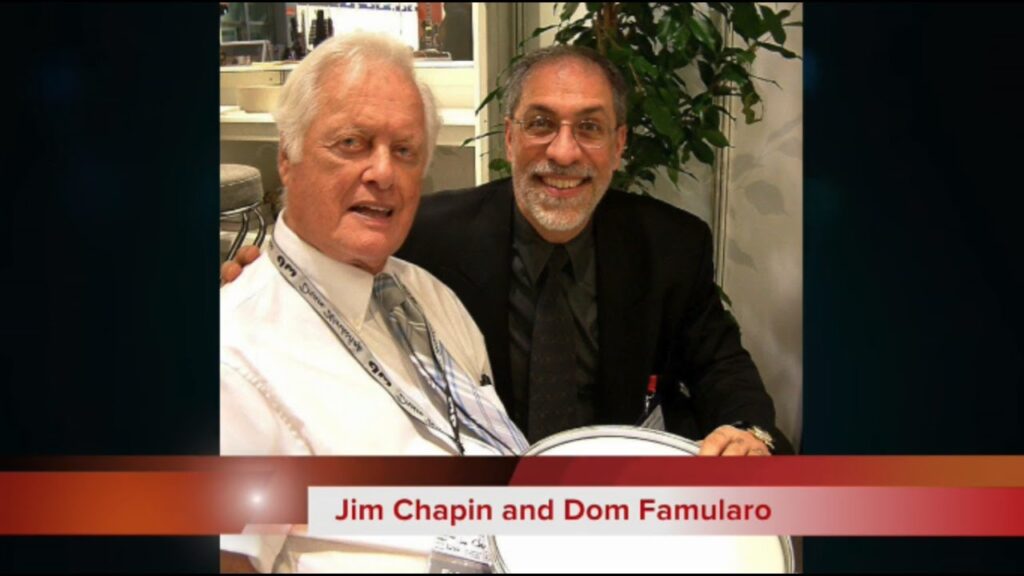
Part 8: Jim Chapin, Dom Famularo, Al Miller
In the summer of 1992, I made a trip to New York to study with the best-known drum teachers in the world (I don’t say those words lightly).
Jim Chapin’s impact on the drum world was profound, to say the very least. Anyone, no matter how high they were on the ladder of prestige and success, sought guidance from Jim Chapin if they wanted to improve their technical skills. When I was considering the trip, I asked Ray Ayotte who Jim Chapin had taught. He looked at me as though I had two heads and said “why don’t I tell you who he hasn’t taught. It’ll save time!”.
He was a strong proponent of what is known as the “Moeller method”, (somewhat of a misnomer). Everyone one that I was learning from was either a student of Jim Chapin or a student of a student of Jim Chapin. I decided that I wanted to get the lesson straight from the horse’s mouth.
As expected, he was a very hyper individual. In his early 80s, he radiated enthusiasm. I have never known anyone who knew more about or understood the subject of technique on the level that he did.
He had a respect for pipe band drumming and was more knowledgeable on the subject than I expected. In one memorable moment he handed me a drill for the four-stroke ruff. He played it then said, “Give it a try”. As it was a rudiment that was up my pipe band drumming alley, I played at tempo on the first try. He had a slightly annoyed look on his face and said, “You had no business playing that, that well. You know that don’t you? It’s that pipe band drumming has put the sound in your ear.”
Organized lesson plans not part of his skill set. I had several two-hour sessions with him. I had a stack of handouts he gave me and a stack of notes that I made for myself. Studying with Jim Chapin meant paying attention, record all notes yourself and then spend time at home sorting through it all.
On the same trip, at the behest of, Ray Ayotte, I booked some sessions with Dom Famularo. Being a close friend of Jim Chapin’s, Dom had some great stories tell. When I related my experience with Jim and the legendary stories I got from his Vancouver disciples, he said in a deeply respectful and affectionate way, “Jim is the world’s worst drum teacher. He also happens to be the world’s most knowledgeable drum teacher.”
My memorable moment with Dom is when I said to him “I’m not really much of a businessman”. He looked me square in the eye and said, “That aspect of your personality must change – immediately!” He was not kidding. He stressed how important self-promotion is in today’s market. Well, it was the 1990’s market but the lesson is even more important now. Prior to Dom, my teachers were completely focused on drumming and music. College instructors told us “Don’t worry about getting a gig. Just practice and get good at your instrument. You’ll get a call”. Even as a 21-year-old, I knew that this was outdated thinking. Dom was the first teacher that told me directly a message that was the opposite of this obsolete approach to the music business. Dom wanted all serious students to understand that being good at drumming isn’t nearly enough. There’s no shortage of good drummers. As with any business, it is imperative to understand the marketplace.
Dom has sadly passed away recently. His own words sum up my experience with him. That is posted on my Drum School page as part 5.
On Jim and Dom’s recommendation, I had some lessons with Al Miller. Jim told me “Al will get your reading in shape.” Al was what I would call “old school” in his approach, and I say that in the best context. He had some business advice for me as well as some study material to take home and practice. Mostly, I remember him as a kind man who was very encouraging. He gave me a ride back to my motel after the lesson and commended me for making the trip to New York for the purpose of studying and bringing home new ideas for my students. He gave me a shot of confidence that I needed.
I see that Al’s son (Whom Al spoke highly of for his skills) is now running the Al Miller Drum School. I never met Al again after my lessons. I did see both Dom Famularo and Jim Chapin again. They are both gone now.
Thank you, Jim Chapin, Dom Famularo and Al Miller. I do choose my words carefully; You three are legends in the world of drum education.
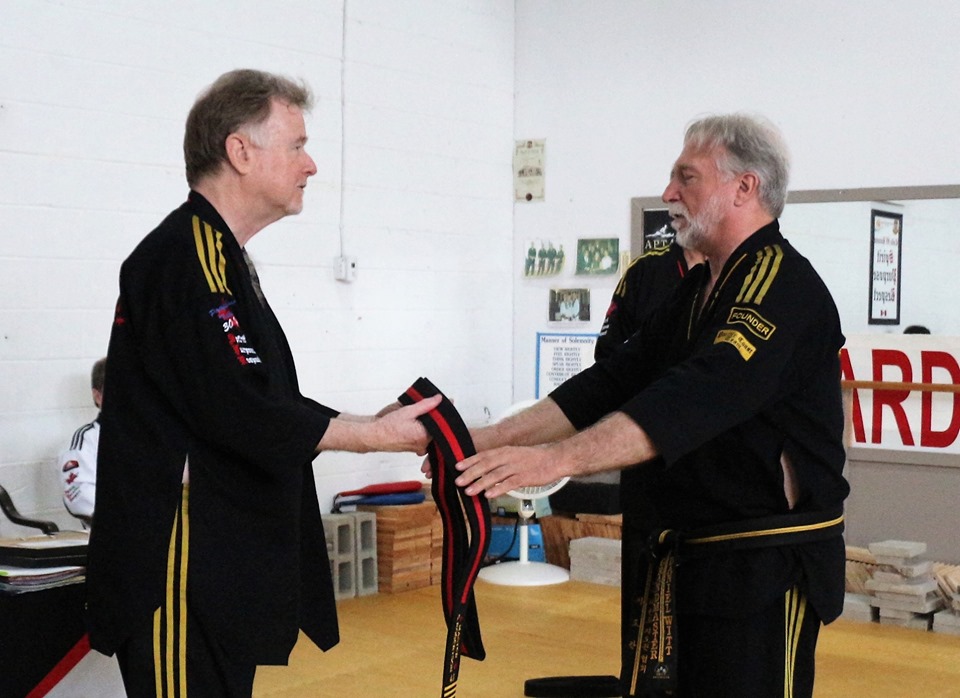
Part 9: Martial Arts/Grand Master Daniel Witt
I understand that it may seem odd that I would include martial arts as an influence on my career as a drummer/drum teacher, but the embracement of the orderliness affected every aspect of my life, including drumming.
From day one, I was drawn to the formality and the discipline that came with a “traditional” martial arts school. (I put traditional in quotes as I use it for lack of a better word). I truly feel that I had forgotten a large part of who I am. The dojang gave it back to me.
In 1996, at the ripe old age of 38, I signed up for taekwondo training at a local dojang. On my first day I was made to feel very welcome by all the students. They were glad to see new member join and anxious to help me take the first steps on a new journey. I loved the order, and the protocol. My first instructor was named Paul Johnston. The club didn’t stay open long and, sadly, I was never able to track Paul down.
Immediately, the order and goal setting of achieving belts affected the way I teach drums. In the dojang, there was an expectation of performance level that went with each belt. Lower belts were simply not expected to kick at a black belt level. I started to see my students more in that same light. I saw myself as being excessively clinical in the early stages of a student’s development. I moved toward an approach of “need to know” at each defined level. I also became more sympathetic to struggling students. After all, here I am pushing forty trying to achieve a level of athleticism for which I’ve never shown an aptitude. (No one has ever accused me of being an athlete.)
I went to a few schools with some very good instructors. By far, the most impactful for me was Pacific Coast Taekwondo (PCT) under the guidance of Grand Master Daniel Witt. In all my life’s endeavours, I have never met anyone as committed and as passionate about their life’s work as GM Witt. He was extraordinarily clear on the reasons why things need to be taught in the order that he teaches them. He was never absent from the school. He closely monitored every word of every instruction given by every instructor.
In my time at PCT under GM Witt’s guidance, (20+ years), I was promoted from first to sixth dan. I taught classes and directed in-house tournaments. I ran a black belt prep class to help students achieve their first black belt. Everything I taught and conducted was under GM Witt’s guidance, I became a better teacher all around as a result. It was especially impactful in the way I teach drum corps, namely at RMM Pipe Band. (That story is coming up soon.)
Aside from the martial arts training, GM Witt and I had many discussions about the challenges of being at the helm of a business, as humble as my career is. As we were both in the business of teaching a skill, we shared many thoughts on how to survive in an ever-changing marketplace.
I would simply not be the same teacher today if it were not for my martial arts training, instructors, colleagues, and the many who helped me on my journey.
Fact: Robertson Drum School simply would not be what it is without the influence of GM Witt and Pacific Coast Taekwondo.
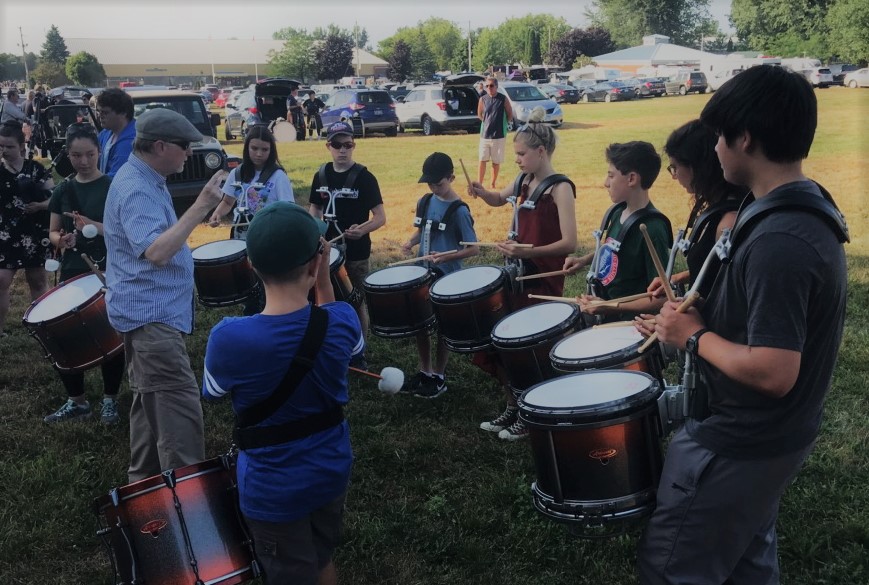
Part 10: RMM Pipe Band/SFU Pipe Band Organization/ Reid Maxwell/ Jack Lee/ Andrew Lee
As I write this, I am entering my nineteenth year as an instructor for the RMM Pipe Band. That makes this the longest association that I have ever had with any pipe band.
I have been an instructor for many bands over the years. Notably, the Vancouver Ladies Pipe Band, the Delta Police, the Seaforth Highlanders. Truthfully, all these bands had an impact on me. The Vancouver Ladies’ grade 3 victory at the 1980 World Championship was a highlight of my teaching/coaching career. I truly feel that I got more from them than I gave to them as an instructor.
My experience at RMM is, however, unique and there is a reason why I would call it an influence on me as a drummer and drum teacher.
I say unique because from the start, instructing RMM was the first time that I was teaching a pipe band drum corps as part of a team of teachers, all under the oversight of J. Reid Maxwell. For those uninitiated in the pipe band world, Reid is the lead drummer of the current world champion drum corps of the SFU Pipe Band. They hold this title for the second consecutive year. (Yes, I will exert my bragging rights that I have former students in their ranks.)
Reid has a remarkable acuity as to how a pipe band’s ensemble needs to function. That fact is reflected in the way he composes the drum corps music for each musical selection the band plays. From a perspective of rudimental drumming, he has an astute understanding of every dynamic rule that is fundamental to each rudiment. Teaching under the framework of Reid’s direction has greatly influenced my understanding of dynamics, and composition in the pipe band style. You could say that I developed “bigger ears” as a result.
In addition to the imprint that adapting to this approach has left on me, I was able to bring my own style of teaching the classes. I tend to lean heavier on theory than a lot of pipe band teachers. (I do not say that as a criticism. Rather, it’s an observation. I am a strong advocate of drummers being able to read and count rhythms in all time signatures.) I like to be very structured in running a rehearsal. I can honestly say that I could not ask for better support for what I do than I got from Reid, Jack Lee, and Andrew Lee (RMM directors). I worked within the RMM structure, but I was able to put my own stamp on the corps to which I was assigned each year. I was able to take three generations of RMM bands to Scotland to play at the World Championships and one generation to the North American Championships in Ontario. The bands made the prize list every time. Those results are a combination of my being allowed to set the teaching direction, under the framework of Reid’s style, with support from other instructors within the organization, and superb coaching the players receive at “Piping Hot Summer Drummer”- the two-week band camp that RMM members attend each year.
Both of my sons had their time in RMM. In an odd twist of fate, I wound up playing in the RMM grade 2 band. (It is the adult band within the organization. Grade 1 is the top grade. SFU Pipe Band is a grade 1 band.) My son Alec was my lead drummer. He was able to take his years of RMM experience, assimilate all that he has learned from many instructors, including me, and develop a direction that was his own. I have to say that it was a proud experience being under his leadership. He truly led me, and it had an impact on the way I listen to pipe bands. I was also able to see my older son, Andrew, use his experience to lead the Kamloops Pipe Band drum corps and run a drum program for cadets in Vernon.
Thank you, Reid Maxwell, Jack and Andrew Lee for your leadership and support. Thank you RMM for nineteen unforgettable years. (No, I don’t plan on going anywhere soon.)
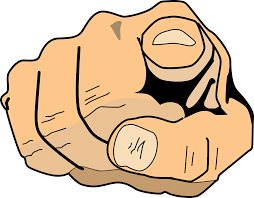
Part 11: Probably you.
I can honestly say that I have learned from every gig, every rehearsal, and everyone that I have played with.
Everyone who plays for years will run the gamut of working under different standards. We all play good gigs and sometimes must experience the bad. I have been a leader and a sideman. In pipe bands I’ve been a lead drummer and a corps player. There were times when I was intimidated on a gig knowing that I was the least experienced, least talented player on the gig. Those are the times that I moved forward. Staying in our comfort zone is utter stagnation.
I find it difficult to single anyone out because I have learned something from everyone that I have played with, taught with, or had some connection to in my musical life. Some people that I have worked with had a profound affect on my musical outlook and my approach to playing and running a band. All that I can say is that if I have hired you to play a gig with me, you brought something to the job that stays with me. If you have ever hired me, I was honoured to be called. I am always aware that there are other options aside from inviting me. Rest assured, something that you did as a leader inspired me to take that to my next gig.
I’ve played in some of the best and the worst hotels in town. Either way, it added to my life’s experience. Someone on those gigs played something or said something that added to my mental inventory.
If you, the reader of my weekly reflections, and I have ever played together on a gig, rehearsal or in a drum corps, know that something is with me that you gave me.

Part 12 (Final Chapter): Mona, Andrew, and Alec Robertson
Yes, family. I saved the biggest and most meaningful influence for last. There is no question that my wife and sons have had the biggest impact on the way I go about my business. (And life, but I will stick to the drum business theme).
From the day my first son was born, I knew that I had to either change the way that I conduct my business or get out of the drum business altogether. Time suddenly becomes valuable. This necessitates putting a value on every moment of work. It’s opportunity cost. Does the job justify the time away from home? It necessitates being clear on terms. Payment policies cannot allow people to occupy your time at their discretion. Failure to be assertive means forfeiting your time and talents to someone else.
Watching my sons grow, go through school, and have their own adventures in the world of pipe bands and drumming has completely changed the way I see my students. It’s truly amazing how differently two brothers can process the world around them. I had a much deeper understanding of how my students react to their time with me in a lesson. I understand that I have no idea how a student’s school day went, and most are not eager to share the information. There can be a profound difference in the way they respond if the lesson is right after school or after dinner. I could go on about all the different types of experience that I’ve had teaching over the last 45 years, but perhaps another day. The truth is, I am simply far better at managing my lessons and communicating with my students having my sons in my life.
As drummers, I’ve watched them take what they learned from me and make it their own. Andrew passed on his experience to cadets in Vernon and led the drummers in the Kamloops Pipe Band. Alec led the RMM grade 2 drum corps and is now teaching beginners. I’m truly inspired by the way the bring their own perspective to the table.
And my wife, Mona. I hardly know where to begin.
I will speak for myself, but I am certain that I am not the only musician to experience the following. Being a gigging musician means you are taking your passion and dedicating a part of your very being toward its fulfillment. The high points are amazing. The music, the venues, the people that appreciate what you do, and the friendships are precious beyond description. There are, however, the low points. That means facing rejection, exclusions, and unrewarded enthusiasm. It means coping with crippling self-doubt and self-repudiation. It can be overwhelming, if not mortifying.
Mona never ceased believing in me. Not once, not ever. She believes in me when I do not believe in myself. She helps mend my failures. She shares my frustrations. She reassures me in my self doubt. If you have been following my reflections on my influences in parts 1 through 11, you know that I have had powerful mentorship from outstanding individuals. Nonetheless I would not have lasted in this career (as humble as it is) without my wife’s undying support.
The people you see in the attached picture are, without question, the biggest influence in my career and in my life.
